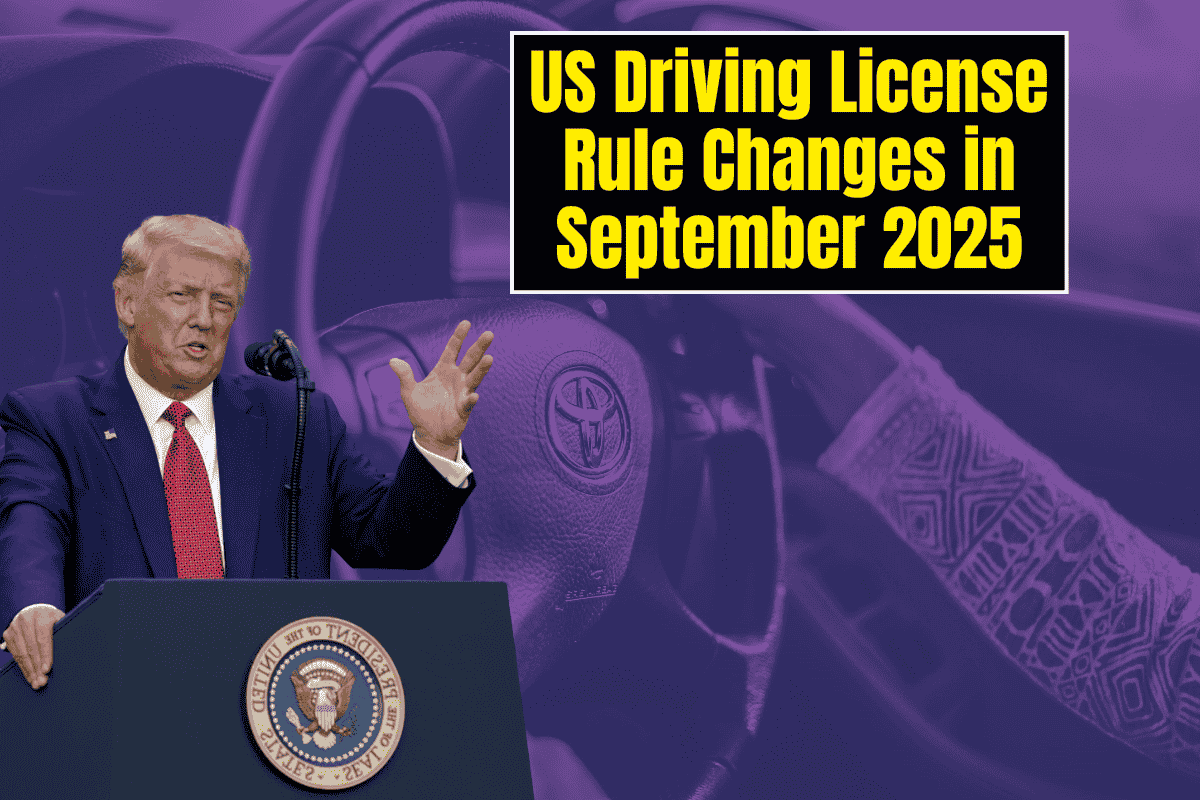The U.S. citizenship process is set to become tougher again, as the government brings back a stricter version of the civics test. This change is part of a larger plan by the Trump administration to make legal immigration harder.
The new rules mean applicants will now have to answer more questions correctly to pass the test, raising concerns among immigrant rights groups.
What’s Changing in the Civics Test
The civics test is one of the key steps in becoming a U.S. citizen. It checks if applicants understand American history, politics, and values. Under the previous version of the test, which had been used since 2008, people needed to study 100 questions and correctly answer 6 out of 10 during the interview.
Now, the Trump administration has brought back a tougher 2020 version of the test. Under the new rules:
- Applicants will have to study 128 questions.
- They will be asked 20 questions during the interview.
- To pass, they must answer at least 12 questions correctly.
The test is still conducted orally, and the questions are not multiple choice. Most questions have more than one acceptable answer. If a person fails the test, they get one more chance to take it. Failing again means their application for citizenship will be denied.
Who Does the New Test Apply To
This new version of the civics test will apply to all citizenship applications filed after mid-October. There are some exceptions, though:
- Applicants who are 65 or older and have been permanent residents in the U.S. for 20 years or more only need to study 20 questions.
- These older applicants can also take the test in a language they are more comfortable with.
Topics Covered in the Updated Test
Some of the new topics included in the updated test include:
- The 10th Amendment
- The Federalist Papers
- Founding Fathers like Alexander Hamilton and James Madison
- Former President Dwight D. Eisenhower
- Key American innovations
These topics are seen as more challenging and detailed, which may make the test harder for some immigrants, especially older applicants or those who don’t have strong English skills.
Other Immigration Changes Under the Trump Administration
The test changes are just one part of a wider push to tighten legal immigration under President Trump’s second term. Some of the new steps include:
- Expanding what counts as “good moral character” — a required part of citizenship applications.
- Reintroducing “neighborhood checks,” where government investigators visit neighbors or co-workers to learn more about applicants.
- Looking closely at an applicant’s social media history.
- Investigating any signs of “anti-American” views or behavior before granting green cards or work permits.
According to officials, these changes are meant to ensure that only those who truly embrace American values are allowed to become citizens.
Mixed Reactions to the Policy Shift
USCIS spokesperson Matthew Tragesser said the changes will help make sure new citizens are “fully assimilated” and ready to contribute to the country. He also said this is just the beginning of more upcoming changes.
On the other hand, many pro-immigration advocates have strongly criticised the move. Jennifer Ibañez Whitlock from the National Immigration Law Center said that these changes only make the process harder for people who have already lived in the U.S. for years and are trying to secure their future here.
Many worry that the tougher test and stricter checks will discourage legal immigrants from applying for citizenship, especially those with limited education or English skills.
The return of the tougher civics test is part of a broader plan to make the U.S. immigration process more difficult under the Trump administration. While the government claims it’s about ensuring loyalty and understanding of American values, critics believe it unfairly targets long-term residents and creates extra hurdles for those who already contribute to American society.
As these changes come into effect, many immigrants and their supporters are preparing for a longer, more complicated path to citizenship.
FAQ
1. What is the new US citizenship test format?
The new test includes 128 study questions. Applicants will be asked 20 questions during the interview and must answer at least 12 correctly to pass.
2. Who needs to take the new civics test?
The new test applies to all who file their citizenship application after mid-October 2025. Seniors aged 65+ with 20+ years as permanent residents only study 20 questions.
3. Why is the US changing the civics test?
The Trump administration wants to make the test tougher to ensure that new citizens understand American values and history better.
4. Can I retake the civics test if I fail?
Yes, applicants who fail the test get one more chance to take it. If they fail again, their citizenship application is denied.
5. What are neighborhood checks in the citizenship process?
It’s a revived policy where government investigators talk to neighbors or coworkers of the applicant to verify their character and eligibility.












